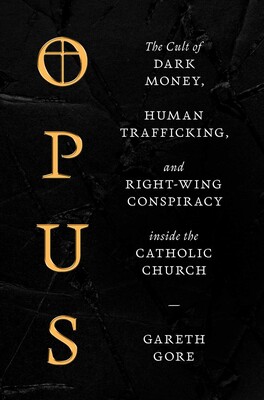GG: By the late 1940s, Opus Dei had grown to a critical size in Spain, and Escrivá began very quickly to look at expanding into other countries. And he got permission from the Vatican to do that. His first port of call was Portugal, next door to Spain. Then he quickly started to expand across Europe. And thanks to the financial support that it had from the regime back in Spain, and thanks to the growing membership, he had the money to do it. And then later in the ’50s, when the group hijacked this national bank, Banco Popular, money was suddenly no object. So they expanded into the Americas. Latin America, with a common language, made it easier for Opus Dei members to fly over and to set up new networks there. But they got to the United States very early as well. By the late ’40s, they were already established. Initially in Chicago, but then they branched out to Boston, then New York, then Washington.
Today, Opus Dei is present in, I think, sixty-seven countries around the world: Australia, the Philippines, Japan, all across Africa, almost every single country in Europe and Latin America, Mexico, the United States, Canada. It’s on all of the six inhabited continents. In terms of membership, it says it has about 100,000 members around the world. There’s been a great deal of debate about whether or not those numbers are accurate. And certainly in the last few years we’ve seen large numbers of people leave the movement.
MO: There’s a way in which one could say this is all fairly benign. People decide to join this organization. They give, what, 10 percent of their income, if they’re supernumeraries?
GG: Yeah, well, the supernumeraries are told to treat Opus Dei as if it was another child, and to kind of give appropriately for whatever you might spend on your child’s education or food and clothing or whatever.
MO: But you argue that they’ve done some pretty evil things. Let’s talk about them.
GG: First, the hijacking of Banco Popular in the 1950s really gave Opus Dei the financial firepower to expand to every corner of the world. There was this huge flow of hidden money, some of it secreted through places like Switzerland, Liechtenstein, and Panama, with all of these shell companies that were used to finance the expansion of this network.
Banco Popular and the money has been fundamental in helping Opus Dei to really expand and create what is a global network of residences, schools, universities, and all kinds of hidden initiatives that kind of hide in plain sight, that don’t really advertise what they really are.
